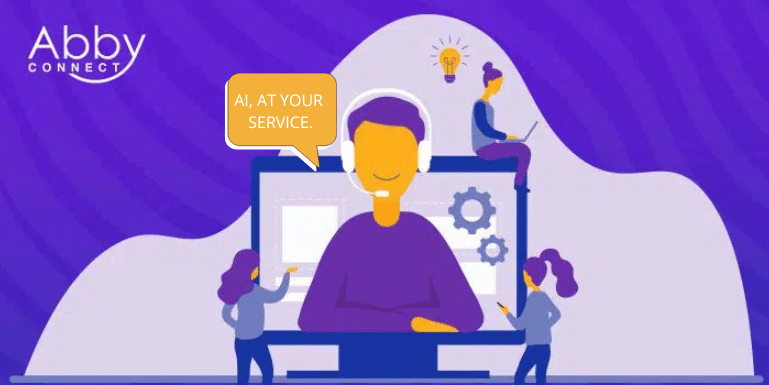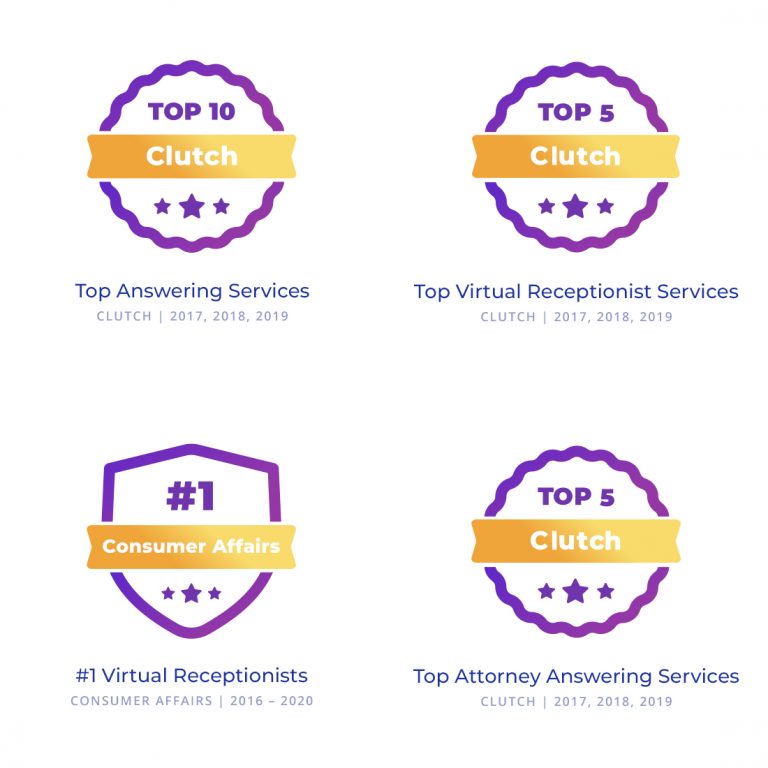
Artificial intelligence (Ai) is transforming the business world, yet many myths persist about its capabilities, “dangers”, and implications. It’s easy to fear what we don’t understand, so Abby is here to debunk common misconceptions surrounding Ai in business. Ai is a powerful tool, and tools are designed to be wielded by humans for humans, not to replace them. Ai helps us achieve more, go farther, be more efficient, make fewer mistakes, and expand our capabilities beyond our limitations.
Myth 1: Ai Will Replace All Jobs
Every time new technology hits the market, some people fear that it will replace human workers. It’s true that needs may change, and job requirements and duties may shift because of new available technology, but that doesn’t mean jobs will no longer exist.
One of the most pervasive myths is that Ai in business will lead to mass unemployment by replacing human workers. While Ai can automate specific tasks, it is more likely to augment human capabilities rather than replace them.
According to a report from the U.S. Department of Labor, “The Future of Work: A Journey to 2022,” automation will reshape jobs but not eliminate them. The report states that while some jobs will be lost, others will be created, especially in sectors that require human creativity, emotional intelligence, and complex decision-making. For instance, jobs in healthcare, education, and creative industries will continue to require human intervention.
Myth 2: Ai Is Only for Large Corporations
Another misconception is that only large corporations can afford to implement Ai technologies. In reality, Ai is becoming increasingly accessible to businesses of all sizes.
For instance, Abby Connect has built an Ai virtual receptionist product that is affordable for businesses no matter their size with pricing packages that can work for nearly any budget. The trick to gaining the benefits of Ai technology is thoughtful strategy. It’s important to do your research to discover which Ai products will benefit your business most. This will help you decide which tools should be implemented at your organization.
Myth 3: Ai Is Perfect
Some believe that Ai systems can make perfect decisions. However, this myth overlooks the biases that can be embedded in Ai algorithms. According to the Government Accountability Office (GAO), Ai systems can perpetuate existing biases if trained on flawed or biased data.
Ai systems are only as good as the data they are given. That’s why Abby is diligent about taking the proper time to set up each account for any business that takes advantage of our Ai virtual receptionist product. It’s also important to conduct regular audits of Ai business tools to identify and mitigate any biases, errors, or malfunctions.
Acknowledging that Ai is a tool created and managed by humans can help businesses understand the importance of ethical and operational considerations in Ai in business deployment.
Myth 4: Ai Is Just a Fad
Some skeptics argue that Ai is merely a passing trend. However, the U.S. government’s investments in Ai research and development underscore its long-term significance. The National Ai Initiative Act of 2020 aimed to promote and coordinate federal investments in Ai research, signaling a commitment to integrating Ai into various sectors.
The White House Office of Science and Technology Policy (OSTP) has also outlined a strategic approach to ensure that the U.S. maintains its leadership in Ai and continues to put out information for how Ai can be responsibly adopted by businesses and the government. This includes fostering innovation, supporting workforce development, and ensuring ethical standards in Ai applications.
Ai in business is here to stay, and just like technologies that came before it, embracing this advancement and strategizing how you can use it can help your business stay ahead of the competition.
Myth 5: Implementing Ai Is Simple and Quick
Another common myth is that implementing Ai solutions is straightforward and can be done quickly. In reality, to implement Ai in business responsibly, the process requires careful planning and consideration.
Abby’s Ai implementation encompasses several key stages: problem identification and discovery, data collection, testing, and ongoing evaluation. Significant effort has been invested in developing a high-quality Ai solution that effectively addresses our clients’ business needs. The entire journey, from initial discovery to a fully operational and robust Ai solution, requires time and dedication.
Organizations must prioritize high-quality data and a clear understanding of their business objectives before deploying Ai solutions. Abby has adopted a phased approach to implementation, facilitating testing and adjustments to ensure alignment with our clients’ goals. When you sign up for Abby’s Ai virtual receptionist, we take the necessary time to gather comprehensive information about your business, including needs and requirements, to ensure that your Ai receptionist manages your customer interactions in the most effective manner possible.
Myth 6: Ai Can Work Without Human Oversight
The belief that Ai can operate independently without human oversight is incorrect. While Ai can analyze data and provide insights, human judgment is essential for decision-making, especially in critical areas such as healthcare and finance.
Ai should be used as a support tool rather than a decision-maker. There will always be a need for human oversight to interpret Ai-generated insights and make informed decisions, particularly in high-stakes situations.
Myth 7: Ai Will Lead to Greater Inequality
Concerns about Ai exacerbating income inequality are valid, but the situation is more complex. While Ai could result in job elimination for specific types of jobs in specific industries, it could also facilitate job creation in emerging fields. For instance, roles in Ai ethics, data management, and algorithm transparency are expected to grow.
By focusing on workforce development and reskilling, governments and organizations can help mitigate potential inequalities arising from Ai adoption. Ai can also help reduce operational costs and enhance productivity, potentially leading to lower prices for consumers.
Myth 8: Ai Will Lead to Unregulated Data Use
There is a common belief that the rise of Ai in business will lead to rampant data misuse. However, regulatory frameworks are being established to protect individuals’ privacy and data rights. The Federal Trade Commission (FTC) has emphasized the importance of consumer privacy and has taken steps to enforce regulations that govern data use in Ai applications.
These regulations ensure that organizations must obtain consent for data use and implement measures to protect consumer information. Abby is dedicated to protecting our clients’ data and privacy. Follow the link for more information on Abby’s privacy policy.
Sign Up for Abby’s Ai Receptionist Beta Product
The integration of Ai in business is a multifaceted issue, surrounded by misconceptions that can hinder its adoption and effectiveness. By debunking these myths, we can foster a more informed perspective on Ai’s potential and risks.
Understanding the benefits and challenges of adopting Ai can help businesses leverage its capabilities responsibly while addressing ethical and practical concerns. As Ai continues to evolve, staying informed and adaptable will be crucial for navigating this transformative moment. Businesses should make informed decisions that harness the full potential of Ai, benefiting both their organizations and the broader economy.
Your business can begin adopting Ai as a solution as soon as today. Sign up for Abby’s Ai virtual receptionist Beta product!
